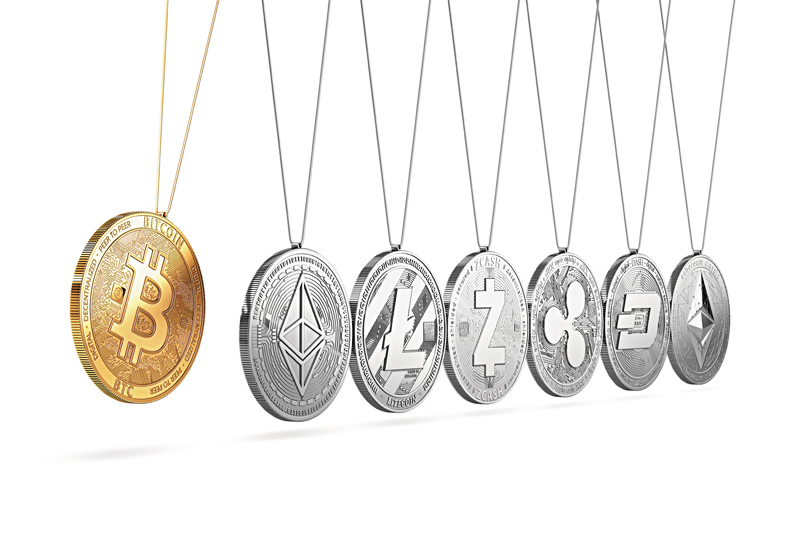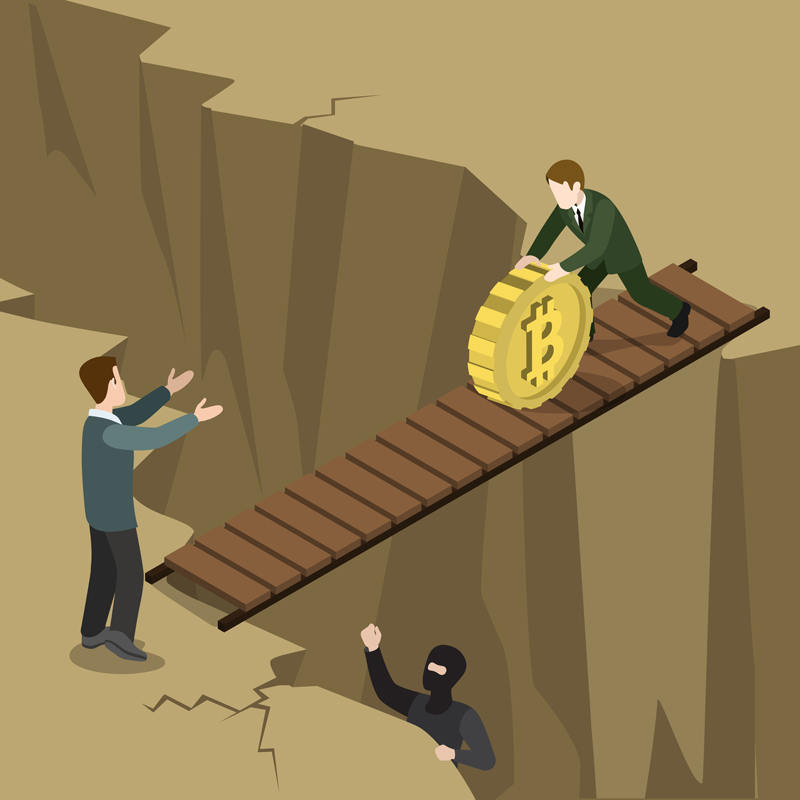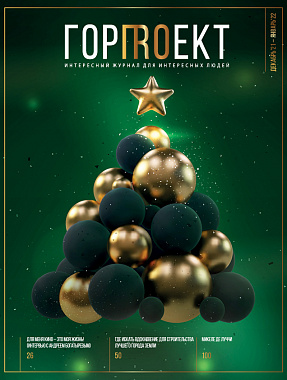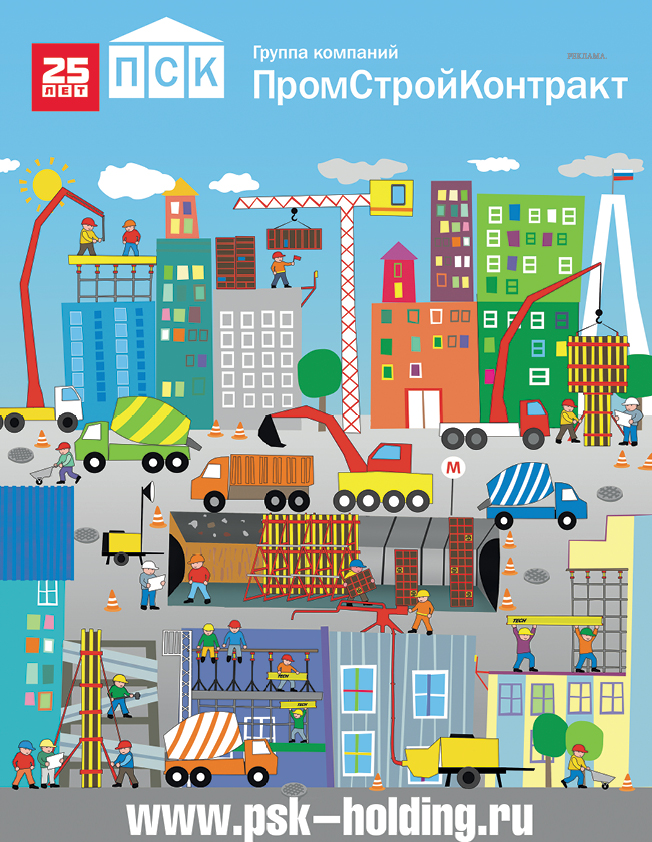Is bitcoin a tool of terrorists? Many governments, organizations, and banks argue that Bitcoin's anonymity is a threat to people. A system for transferring tokens at the peer-to-peer level (“user to user”), the advantage of which is that the participants in the transaction are anonymous. He is accused of being an excellent tool used by terrorists and swindlers due to his anonymity and the absence of a supervisory authority. Is it so? It is worth thinking about this question.

Before we start talking about the nature of Bitcoin and its properties, we need to clarify what Bitcoin is.
In the white paper published by Satoshi Nakamoto, we can read that this is a full one-time version of electronic money that allows you to send money directly from one party to another, bypassing financial institutions. Protection against such a network is a third party, which must confirm the transaction - encrypt it, and then place it on the block chain. The confirmation of the security of the transaction is its encryption. The entry of a transaction into the block chain is based on proof of work. The evidence for this is the argument that a third party must do work (mathematical calculations) in order to process (encrypt) this transaction. The entire network and its maintenance is based on nodes (computers) that process and encrypt the transaction, and then attach a new block to an already existing chain. One of the arguments of Bitcoin is its anonymity.
In other words, it is not known what kind of person sends tokens and what kind of person accepts them. However, does such a system really provide anonymity? In the case of a transaction in Bitcoins, everyone can find out: the sender's address, the recipient's address and the number of transferred tokens for each transaction from the beginning of the existence of the cryptocurrency. As previously mentioned, the sender and recipient addresses, as well as the value of the transaction, are at your fingertips.
The fact that a line of 26-35 characters and numbers does not say much about the participants in the transaction, although it does provide an opportunity for identification if desired. Imagine a situation in which we know that someone is sending a certain amount of tokens, at a certain time, and in this way we can match the sender's address with an individual. Because of its mode of operation, Bitcoin is not well liked by governments or banks.
For over 500 years, banks have been involved in transactions between people who pay them for these services. The work created by Satoshi allows you to bypass the entire financial system and transfer money to the other side of the world without the knowledge of a financial institution. It is true that this creates an opportunity to use Bitcoin, for example, to evade taxes or buy illegal goods like weapons or drugs. In recent times, we have witnessed how government agencies and the highest government bodies have a negative attitude towards cryptocurrencies.
China banned ICOs and closed cryptocurrency exchanges. South Korea has also banned the collection of capital through the issuance of tokens (Eng. Initial Coin Offering). An argument that has come up repeatedly is the possibility of using Bitcoin by terrorists, thieves, scammers and using it to finance the trade in drugs, weapons, people or information that threaten the country's strategic interests.

Because of this, many cryptocurrency exchanges or blockchain companies have been forced to introduce two government initiatives, KYC and AML.
Know Your Customer - forces users and exchanges to provide scans of passports or driver's licenses, as well as an electricity or apartment bill to confirm residence.
If this action is not performed, the user will not have access to the exchange or he will be severely restricted. Anti Money Laundering - Many exchanges require their users to provide a source of income from which they invest in the stock market.
Such actions are aimed at preventing the purchase of cryptocurrency with money that comes from illegal sources - this causes a lot of controversy. It is worth considering why someone who checks our account on the exchange or its owner should know about our sources of income and their types. As a rule, such information is collected and controlled by the treasury authorities of the respective state, and it is confidential data. Let's step away from Bitcoin for a moment and look for the tools used by terrorists and outlaws.
Of course, these are not bank transfers and credit cards that are assigned to a given owner and all their activity is recorded in the banking system, which are controlled by supervisory authorities. We have to use cash. Reading crime novels or watching films depicting mafia activities, it is easy to see that these organizations and their affiliates most often use banknotes. Why? Because once they are distributed, they may remain invisible to government agencies and the individuals using them remain anonymous during the transaction. The only moment in which the identification of a potential user of funds can occur is the one in which it is paid out from a bank or ATM. As you can see, cash is a great tool for those who do not follow the law and want to remain anonymous when making transactions.
The paradox of the whole situation, in which the state and financial institutions accuse Bitcoin of being used by terrorists, is that it is the state mints that print money on behalf of governments. The same countries that link Bitcoin to terrorists are producing the most common means used for trafficking and breaking the law – cash.

A report from July 2017, developed by the European Commission, states that the risk of using cryptocurrencies to finance terrorism is unlikely.
The report draws attention to the fact that virtual tokens such as Bitcoin require technical knowledge and skills to surf the Internet and use computer programs. For this reason, it is not the most attractive form to support terrorism. It should be noted that money was invented in order that people should not have to carry securities, gold bars, silver or precious stones, and could transact with conventional banknotes that have a certain value and are widely accepted in a given place. The use of money by terrorists does not mean that their concept of existence is bad or that their production should be stopped. So it is with Bitcoin, which was created to be able to transfer tokens of a certain value between users without the participation of financial institutions. These transfers are several times cheaper than in the case of traditional banks, and the concept of Bitcoin anonymity was built on the inalienable human right to privacy and the freedom to make decisions within the law. The potential use of bitcoins by terrorists is just as disadvantageous as cash, and should not be excluded from everyday and general use. History has already proved many times that it is not the technology that is bad, but the people who use it.

 DOWNLOAD
DOWNLOAD LOOK
LOOK
 Top Content of the Month
Top Content of the Month


